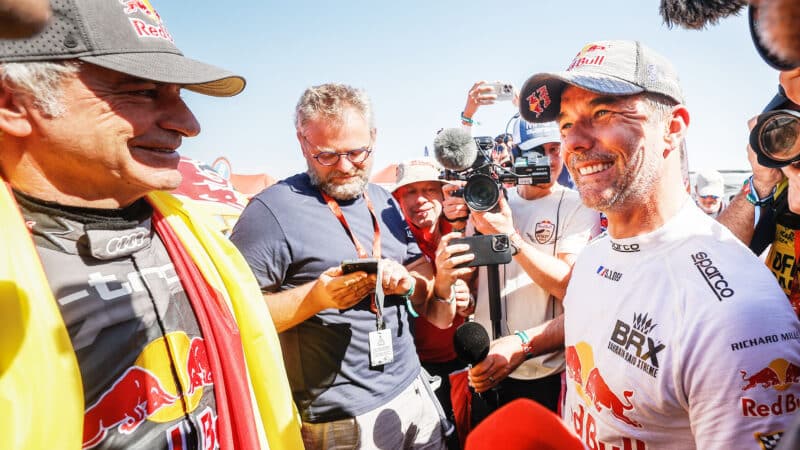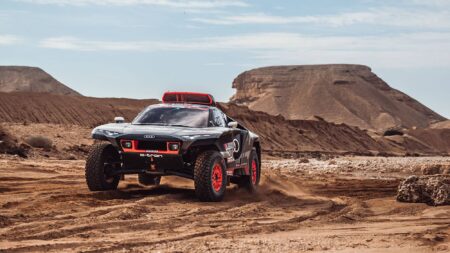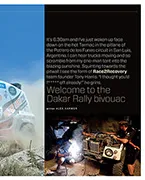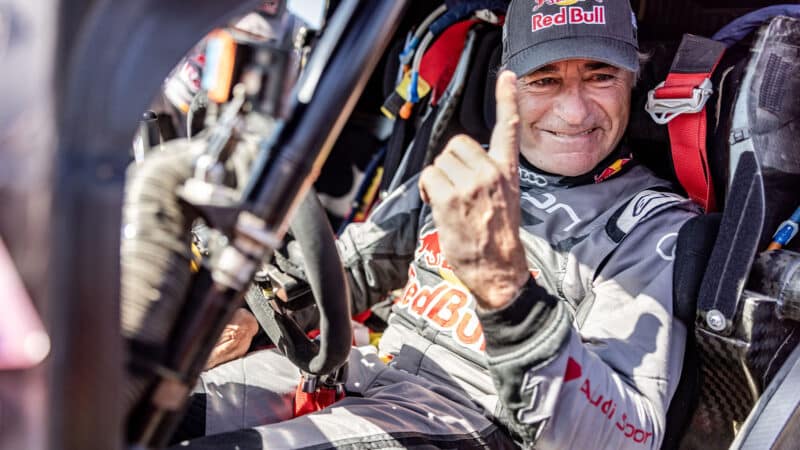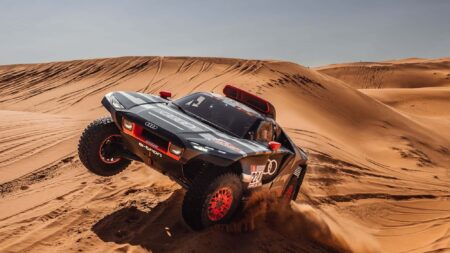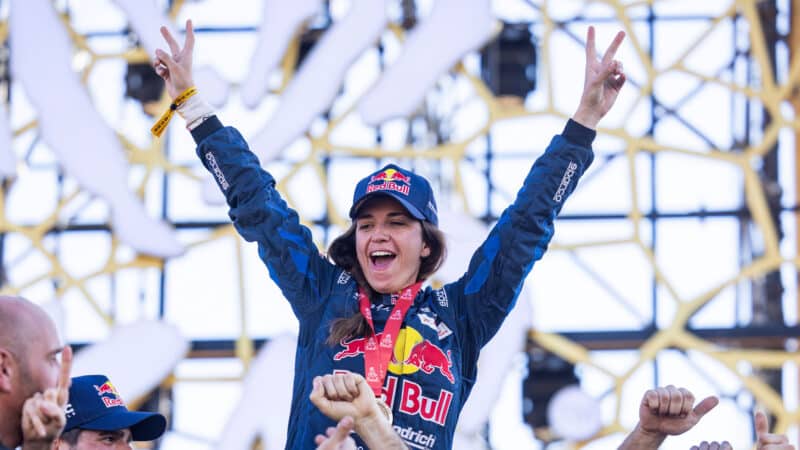“Carlos won the rally because he was just consistent, doing a good job everyday,” said Loeb. “We won a lot of stages but had many troubles. Not only the car [but also] the punctures, everything – so at the end, he’s winning.”
Prodrive had gone for a bottom heavy approach to this year’s Dakar. Loeb and five-time winner Nasser Al-Attiyah were the works drivers, supported by five privateer entrants.
“Sébastien Loeb and Nasser Al-Attiyah in one team – that takes away all the excuses, doesn’t it?” said Prodrive boss David Richards prophetically prior to the event.
Yet another veteran, 61-year-old Sainz, a double WRC champion going up against the nine-time world rally king, started the rally as he meant to go on with a solid second place on the first stage.
Winning the Stage 1 test was Toyota privateer Guilleme de Mevius, one of several drivers who demonstrated throughout the event that perhaps all you need to succeed at the world’s toughest rally is a Toyota pick-up truck.
Five-time winner Nasser Al-Attiyah had abandoned his works Hilux for 2024 to become Loeb’s team-mate at Prodrive. The Qatari driver showed decent pace early on and won Stage 5 this year for Prodrive, but just one Etape later it was all over.
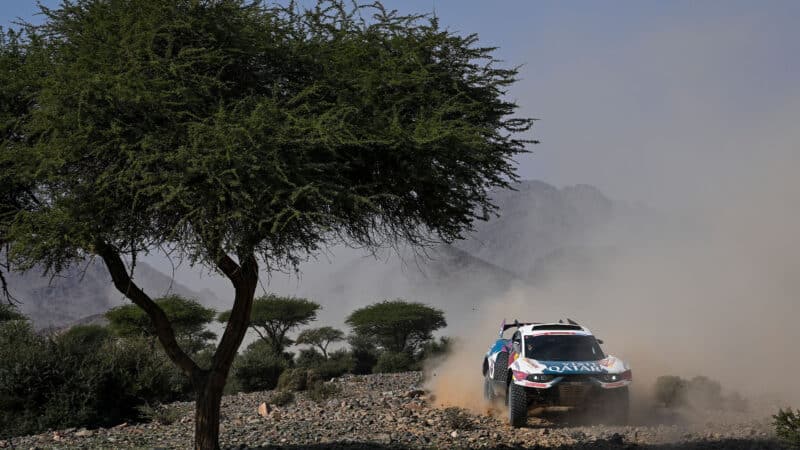
Al-Attiyah struck trouble at various points – and pulled out
Dakar
A rather heavy landing on Stage 6 did for his Hunter’s suspension, the almost three-hour delay leaving him out of the running in the general classification.
“The idea is to help Seb [Loeb] to win the Dakar,” he said afterwards. “I’ll do everything I can to make it happen.”
This plan was then apparently changed when engine failure on Stage 8 and a steering issue on Stage 9 prompted him to formally withdraw from the rally.
“I’m sorry, I don’t want to get back in this car,” said Al-Attiyah, seeming to have briefly forgotten he’s signed to drive its Dacia-branded evolution next year.
